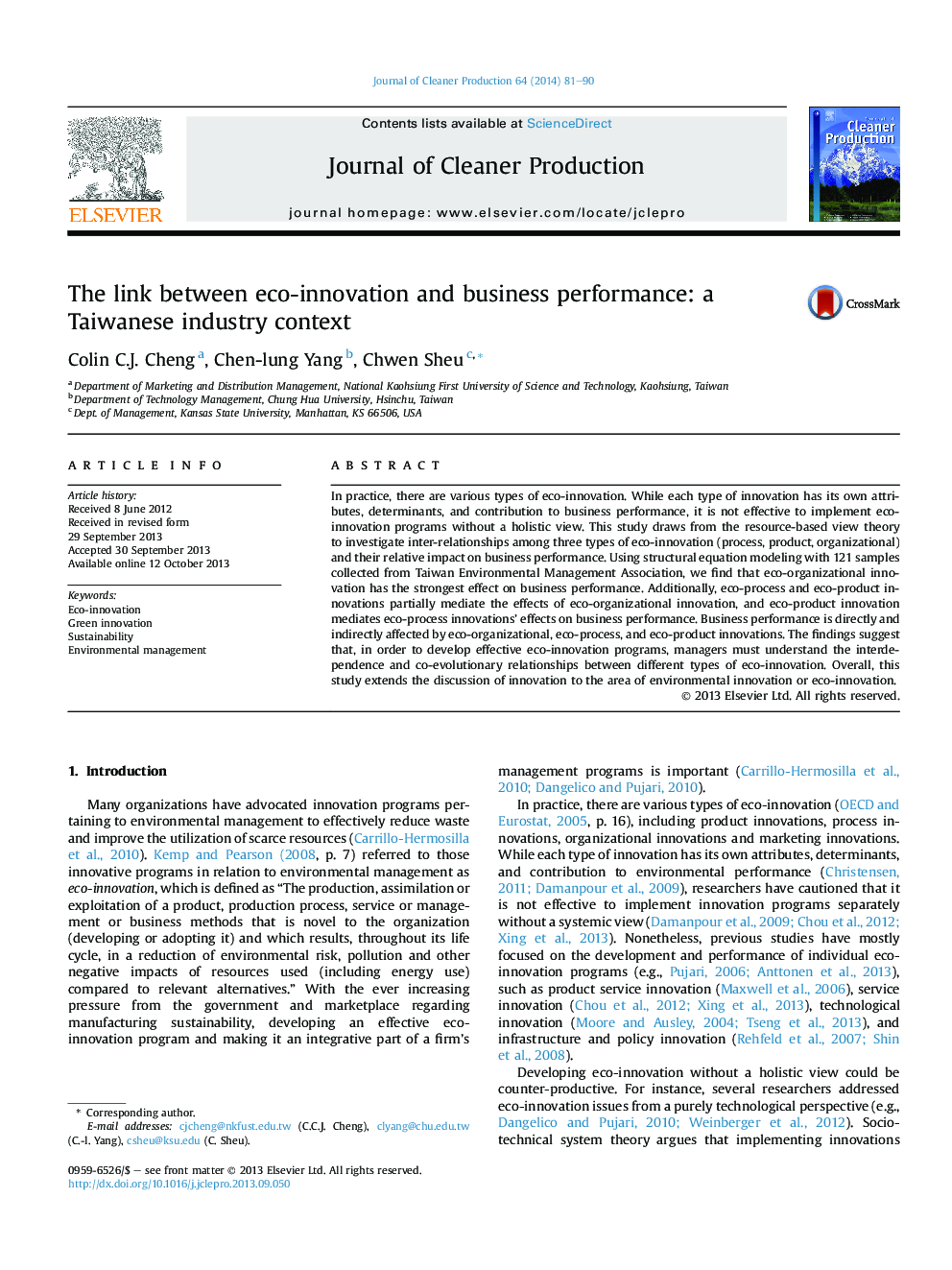| Article ID | Journal | Published Year | Pages | File Type |
|---|---|---|---|---|
| 8106882 | Journal of Cleaner Production | 2014 | 10 Pages |
Abstract
In practice, there are various types of eco-innovation. While each type of innovation has its own attributes, determinants, and contribution to business performance, it is not effective to implement eco-innovation programs without a holistic view. This study draws from the resource-based view theory to investigate inter-relationships among three types of eco-innovation (process, product, organizational) and their relative impact on business performance. Using structural equation modeling with 121 samples collected from Taiwan Environmental Management Association, we find that eco-organizational innovation has the strongest effect on business performance. Additionally, eco-process and eco-product innovations partially mediate the effects of eco-organizational innovation, and eco-product innovation mediates eco-process innovations' effects on business performance. Business performance is directly and indirectly affected by eco-organizational, eco-process, and eco-product innovations. The findings suggest that, in order to develop effective eco-innovation programs, managers must understand the interdependence and co-evolutionary relationships between different types of eco-innovation. Overall, this study extends the discussion of innovation to the area of environmental innovation or eco-innovation.
Related Topics
Physical Sciences and Engineering
Energy
Renewable Energy, Sustainability and the Environment
Authors
Colin C.J. Cheng, Chen-lung Yang, Chwen Sheu,
